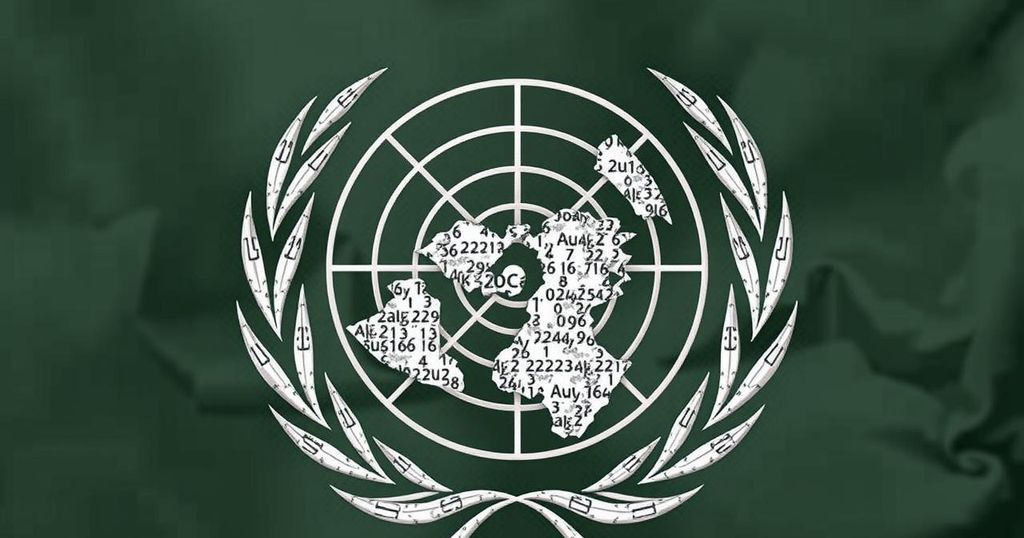World news
AFP, AFRICA, BRITAIN, CEASEFIRE, CONFLICT, CONFLICT RESOLUTION, DAVID LAMMY, DMITRY POLYANSKIY, ENERGY INFRASTRUCTURE, LAM, LAMMY, MOHAMED HAMDAN DAGLO, NORTH AMERICA, RAPID SUPPORT FORCES, RSF, RUSSIA-UKRAINE WAR, SECURITY COUNCIL, SIERRA LEONE, SUDAN, UN, UN SECURITY COUNCIL, UNITED NATIONS, UNITED STATES, US, WAR
Daniel O'Connor
0 Comments
Russia’s Veto Blocks UN Resolution for Ceasefire in Sudan
Russia vetoed a UN resolution calling for an immediate ceasefire in Sudan, blocking efforts to end the ongoing conflict between rival military factions. The resolution proposed by the UK and Sierra Leone was publicly denounced by British officials for Russia’s obstruction. Humanitarian issues continue to escalate, with civilian casualties and displacements reaching alarming numbers amidst ongoing geopolitical tensions within the UN.
On November 18, 2024, Russia exercised its veto power in the United Nations Security Council, blocking a resolution aimed at establishing a ceasefire in Sudan, where conflict has persisted since April 2023 between rival military factions. The resolution, drafted by the United Kingdom and Sierra Leone, urged an immediate cessation of hostilities and called for negotiations toward a national ceasefire. British Foreign Secretary David Lammy condemned Russia’s decision as a “disgrace,” criticizing the ambivalence of Moscow’s diplomatic delegation during the proceedings, particularly its deputy ambassador’s disregard for the session’s significance.
The ongoing conflict, primarily between General Abdel Fattah Al Burhan’s regular army and the paramilitary Rapid Support Forces led by General Mohamed Hamdan Daglo, has resulted in grave humanitarian crises, with tens of thousands dead and millions displaced. Despite previous instances where Russia abstained from voting, recent indications suggest it has leaned more towards General Burhan’s camp amid escalating tensions. In the backdrop of these geopolitical maneuvers, the humanitarian situation remains dire, with catastrophic effects on civilians, compounded by severe food shortages and rampant violence.
The draft resolution also sought to prevent further external involvement that could exacerbate the conflict and called for respect towards an arms embargo in the region. However, there is skepticism regarding the effectiveness of the resolution even if it had passed. The decision demonstrates the ongoing divisions within the UN Security Council, notably between Russia and the United States, which are significantly hampering the Council’s ability to address critical issues globally, from Ukraine to Sudan.
On a broader scale, the veto highlights the escalating rift between major global powers, where humanitarian needs and diplomatic negotiations are often secondary to strategic interests.
The rejection of the ceasefire resolution at the UN underscores the complex dynamics involved in the Sudanese conflict, which pits two military factions against one another amid a backdrop of a faltering democratic transition following a coup in 2021. The protracted violence has led to a devastating humanitarian crisis impacting millions, with international institutions like the UN struggling to unite member states to enact solutions. The tensions between Russia and the U.S. also reflect a larger geopolitical struggle on the global stage, affecting collaborative efforts in international security and humanitarian aid. Despite previous abstentions, Russia’s alignment seems to shift towards General Burhan, indicating a strategic reinforcement that complicates the resolution of conflict in Sudan. The conflict’s fallout has severely affected the Sudanese populace and raised alarms within the humanitarian community about the ongoing violations and deterioration of civil conditions, prompting the need for decisive actions from international bodies.
Russia’s veto of the ceasefire resolution has not only highlighted the diplomatic divides within the UN Security Council but also aggravated the humanitarian crises in Sudan. As geopolitical tensions rise between major powers, the prospects for peace and relief for affected populations remain dim. The continuing violence and complexity of Sudan’s civil conflict necessitate a reevaluation of international strategies aimed at fostering dialogue and delivering humanitarian assistance. The recent events prompt urgent calls for comprehensive diplomatic engagement, emphasizing the crucial need to protect civilians and restore stability in the region.
Original Source: jordantimes.com




Post Comment